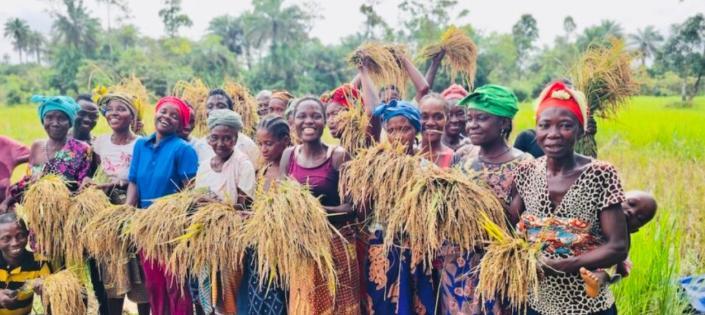Africa-Press – Sierra-Leone. A Recent report by the Institute for Governance Reform (IGR) has revealed significant gender inequalities in the distribution of government support to rice farmers in Sierra Leone.
Despite women making up the majority of the agricultural workforce, only 6% of female rice farmers reported receiving any form of assistance, compared to 8% of male farmers.
The findings were presented on Friday, July 11, during the launch of an impact assessment of the 2022 Gender Equality and Women’s Empowerment (GEWE) Act. The study, backed by UN Women Sierra Leone, involved a survey of 2,000 farmers across Bo, Bombali, Kenema, Kailahun, and Karene districts.
Although women represent nearly 60% of the country’s agricultural labor force, they accounted for just 40% of those surveyed. According to the report, women who did receive support saw higher returns than their male counterparts recording an average yield increase of 839 kilograms, compared to 57 kilograms among men.
Professor Fredline M’Cormack-Hale, IGR’s Director of Research and Programs, noted that the law’s provisions remain largely unenforced due to limited resources and coordination among key ministries.
The GEWE Act was designed to promote equal access to employment, land, and finance, as well as improve women’s representation in public institutions. While the report acknowledges a rise in the number of female MPs—from 13% in 2018 to 29% in 2023—women still hold only 17% of parliamentary leadership positions, mostly in areas considered ‘soft’ sectors like health and social welfare.
The study also highlighted a decline in overall parliamentary attendance, with the national average dropping from 91% in 2018 to 80% in 2023. Attendance among new APC lawmakers reportedly fell by 56%, while SLPP MPs registered a 13% decline.
Some parts of the report suggest that the presence of women in Parliament may positively influence attendance, with data indicating that male MPs were 15% more likely to attend sessions when more women were present.
UN Women representative Baindu Patricia Massaquoi stressed the importance of moving beyond legislation, citing the need for real-life impact, particularly in rural communities. She called for stronger systems to ensure access to justice, protection, and basic services for women and girls.
The Minister of Gender and Children’s Affairs, Isata Mahoi, who attended the event, acknowledged the gaps highlighted in the report and emphasized the need for cross-ministerial cooperation to improve the situation of women in agriculture.
The report ends with a reminder that while legal reforms are in place, implementation remains the real challenge.
For More News And Analysis About Sierra-Leone Follow Africa-Press






